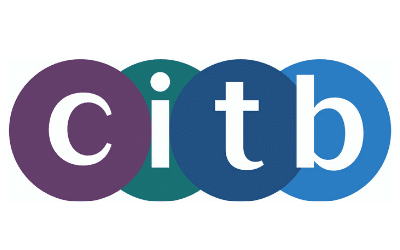
Built environment and fire industries set out blueprint for improving competence and driving culture change
A blueprint to improve competence for those working on higher-risk buildings and drive culture change has been set out by a cross-industry group representing more than 150 organisations (including FIS) in the fire and built environment industries.
Setting the Bar is the second and final report of the Competence Steering Group [CSG] and is an update of its Interim Report, Raising the Bar, published in August 2019. The work was initiated by the recommendations in Dame Judith Hackitt’s review Building a Safer Future.
The proposed overarching system of competence set out in the report is made up of four key elements:
- a new competence committee sitting within the Building Safety Regulator
- a national suite of competence standards – including new sector-specific frameworks developed by 12 working groups
- arrangements for independent assessment and reassessment against the competence standards
- a mechanism to ensure that those assessing and certifying people against the standards have appropriate levels of oversight.
Since the publication of Setting the Bar, the CSG and its working groups have consulted widely and taken on board feedback as they have continued to develop sector frameworks and overarching competence frameworks. These frameworks will provide the skills, knowledge, experience and behaviours needed to carry out specific roles, and deliver a more rigorous approach to the essential training and assessment that is required.
CSG Chairman, Graham Watts, Chief Executive of the Construction Industry Council, said: “We would see higher-risk buildings as an essential starting point for the new competence frameworks for the whole of the built environment, which would result in a step change across the sector and change of industry culture.”
The CSG has worked closely with the Ministry of Housing Communities and Local Government and some of the Report’s key recommendations have already been adopted, including the proposal for a Committee on Industry Competence as set out in the draft Building Safety Bill.
The CSG is urging government to make mandatory the assessments against the frameworks for those working on higher-risk buildings, and is calling on government to take the lead by requiring that the competence framework set out within this report [subject to their review against the Overarching Competence Framework Standard currently being developed through BSI] must be met by any company or individual working on any higher-risk building.
Watts said: “There is no time to lose in casting aside the substandard practices that have shamed the industry. In this document we have set a new bar and we would urge all those working in life-critical disciplines to attain these higher levels of competence. Only then can we rebuild the trust of those who occupy and live in the buildings we design, construct and manage.”
FIS CEO, Iain McIlwee responded “This is a huge body of work that FIS and colleagues from across the industry have dedicated a huge amount of time to. Our efforts have been very much focussed on Working Groups 2 and 12 looking at competency in the supply and installation of products respectively. For me this report starts to set down what is reasonable and we are focussing our efforts on helping members to implement the changes recommended and get ahead of the regulatory requirements that will follow. Through our working group we have been focussing on the FIS Competency SAKE framework based on the Skills, Attitude, Competence and Experience and have started to develop frameworks for each of the occupational areas that we represent. As Graham says, we simply cannot wait.”
Additional to the launch, the competence requirements for the new role of Building Safety Manager have also been completed – which has been a major element of the CSG’s work. Setting the Bar includes a summary of the key points under the Working Group 8 section, but there is a full and separate report published by WG8 alongside this report, Safer people, safer homes: Building Safety Management, reflecting the fact that WG8 is establishing a completely new role and the competence needed.
The Full Report Setting the Bar and accompanying Annexes can be downloaded here.
The Executive Summary is available here.
WG8 Report Safer people, safer homes: Building Safety Management is available here.


















